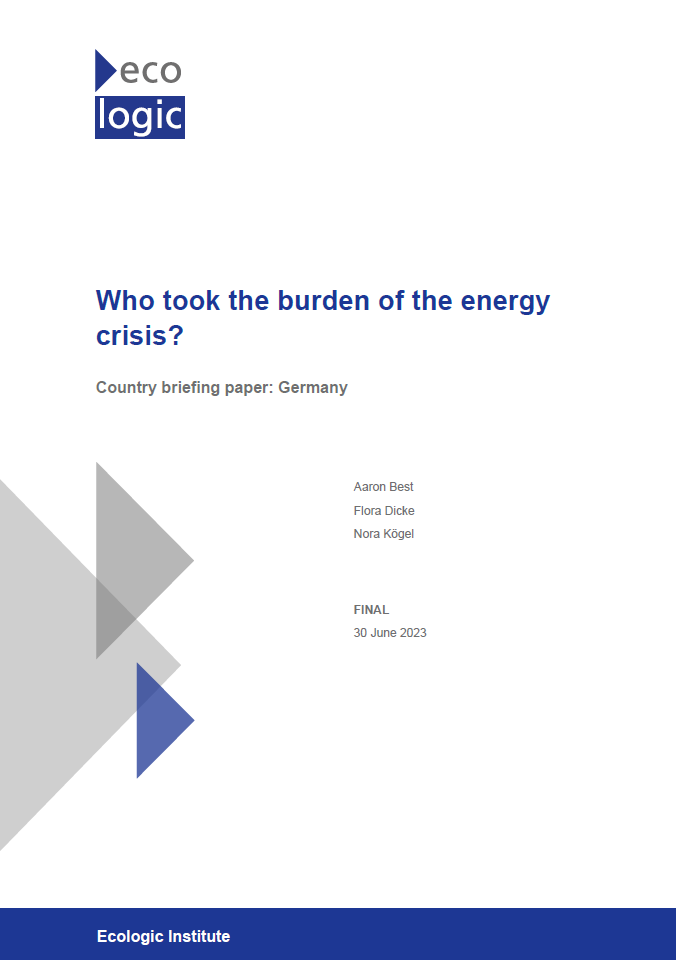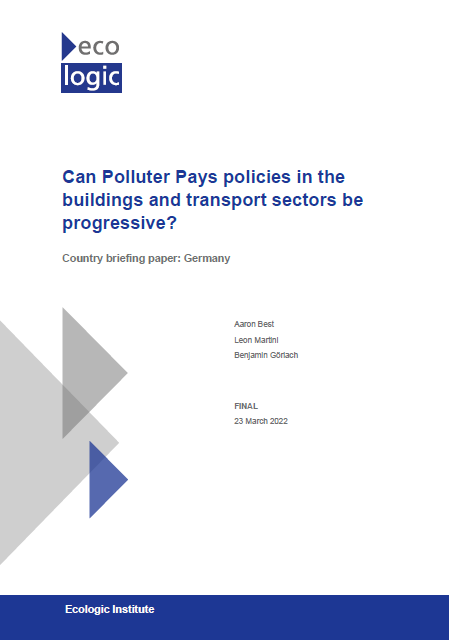Photo by Andreas Gücklhorn on Unsplash
Energy taxes in the EU today are not aligned with the objectives of achieving deep short- and long-term greenhouse gas emissions cuts, with tax expenditures accounting for the majority of EU fossil fuel subsidies. Revising the EU's Energy Taxation Directive (ETD) under the Commissions 'Fit for 55' package provides a key opportunity to advance fair and green energy tax reforms at EU and member state level. Past efforts to reform the ETD have failed in the face of strong oppositional coalitions that blocked phasing-out fossil fuel subsidies. The recently proposed ETD reform can establish an additional, yet comprehensive, carbon pricing regime in Europe while reducing social inequalities. This project looks at the distributional effects of energy tax reform across Europe and develops recommendations for making the reforms socially and environmentally sound.
Energy taxation is a critical economic instrument for internalising the costs of climate damages and other negative externalities, while encouraging the behavioural shifts needed to achieve deep decarbonisation. However, reforming energy taxation entails significant distributional issues that must be addressed to ensure a just transition. This project employs macro-micro modelling of different energy taxation reform scenarios across the EU and within individual member states, to provide an evidence base for policy recommendations. It will consider both the impacts on different household types across the EU as well as the macro-economic implications. In other words, the project will look at both the effects on consumption and production of reforming energy taxation, which will provide the evidence base needed to improve policy.
Ecologic Institute contributes to this project as part of a consortium within the Think Sustainable Europe network with its expertise of German energy taxation and will translate the findings of the modelling exercise to the German context. Based on the empirical evidence from the modelling work, Ecologic Institute will produce policy briefs on the implications of energy tax reform in the EU and provide concrete policy recommendations to support the ongoing reform process.





